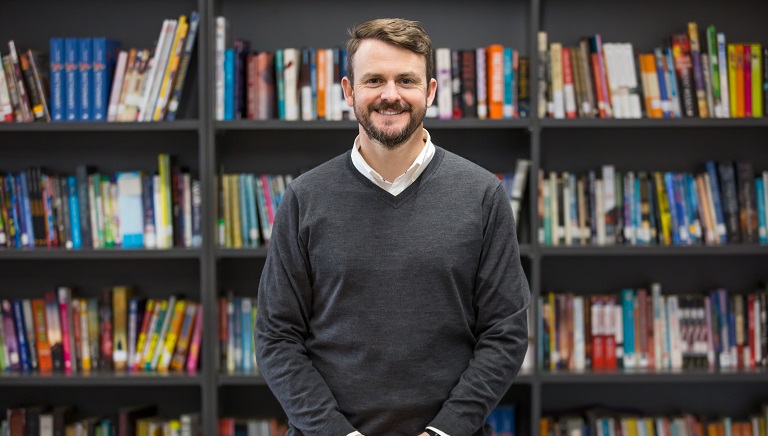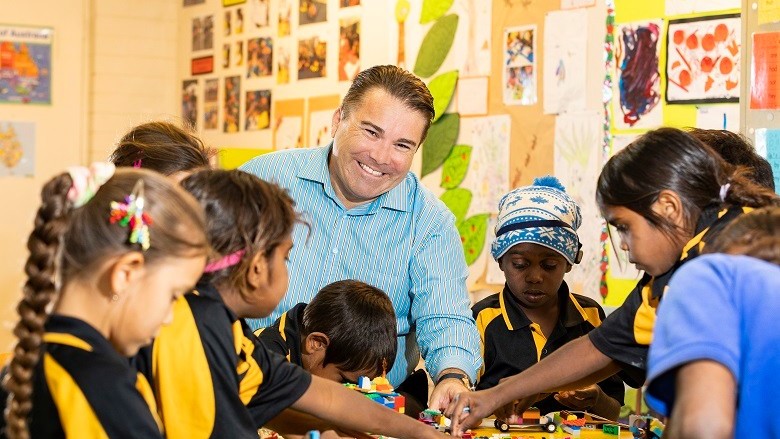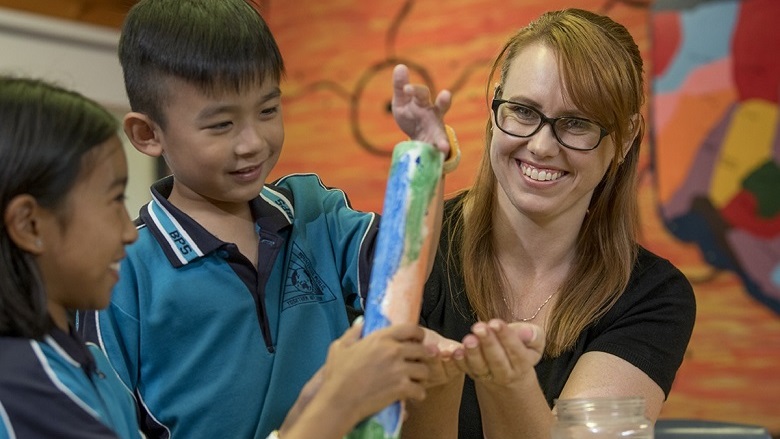Mr Langham persevered. Working with his Monterey College colleagues, he introduced trauma-informed practices based on the Berry Street Education Model, while making time to check in with his staff during lockdown in regular “principal pow wows”.
The results of his hard work are remarkable. Both teachers’ perspectives and student outcomes have dramatically improved: In 2021, Monterey College recorded its best VCE (Victorian Certificate of Education) scores in more than 10 years.
“The two-and-a-half years now that I've been at Monterey has been by far the most challenging work of my career, but also the most rewarding and impactful,” said Mr Langham.
Like him, Ms Cridland is relatively new to Monterey. But she’s also relatively new to the teaching profession — so green that 2022 marked her first working term not disrupted by lockdowns.
Mr Langham recalls interviewing her “maybe days” before the 2020 school term started for what was simply intended as a replacement position. “When you're making that type of an appointment, what you're not expecting is to find a really strong future leader,” he said of his younger colleague.
Ms Cridland’s achievements in her two-and-a-half-year career include incorporating trauma-informed practices into her physical education and sport programs, helping her students manage their stress response — thereby increasing their engagement in class and their academic scores.
“When I first started, I looked at [students’] behaviour and saw it as just defiant,” she told CBA Newsroom. “Now I've realised, through all the trauma-informed practice and the training that we do, that the students are dysregulated because of so many other things we probably can't even imagine going through, and still showing up every day for school.”
Both Mr Langham and Ms Cridland credit the other, as well as their “incredible” colleagues at Monterey, for contributing to their Teaching Awards.
“Peter is one of the most hard-working people I've ever seen in a school, and learning alongside someone like that has just been incredible,” said Ms Cridland. “Being given the opportunities and their ability to make decisions and make mistakes and learn from them on my own, it's made my development really rapid.”
“To be able to create the conditions and opportunities for someone like Jess to be able to thrive, that's incredible for me,” said Mr Cridland, who believes his Teaching Award is “symbolic” of his whole staff’s hard work. “There are many teachers like Jess at our school who are thriving despite these incredibly difficult circumstances.”
Each Teaching Award recipient receives a $45,000 fellowship that goes towards a strategic project in their school and professional development. Neither of Monterey’s winners is exactly sure how they’ll invest their fellowship, but Ms Cridland said she’s keen to learn more about trauma-informed practice and ways it can support students during the often “challenging” transitioning to Monterey from primary school.
Mr Langham said he hopes to convert poorly used parts of the Monterey grounds into “student-friendly spaces that can be a hive of activity during recess and lunchtime” — for example, upgrading what’s currently a concrete slab into a volleyball court, to improve the experience his charges have at Monterey College.
“Our kids carry a lot and it means that for many of them education isn't their highest priority, “he said. “But it is probably the most important thing for them in being able to break that cycle [of disadvantage], and as an adult have control of their own lives.




